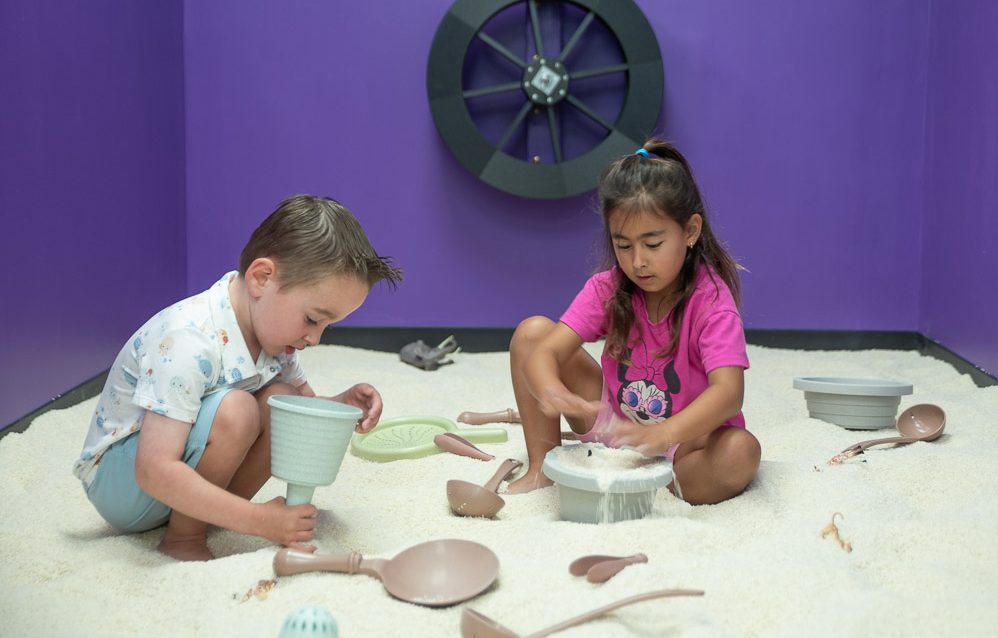


Sensory play provides a wide range of developmental benefits for toddlers, supporting the growth of fine and gross motor skills, sensory integration, language acquisition, cognitive development, and social-emotional well-being. It also encourages creativity, enhances problem-solving abilities, and helps with emotional self-regulation. Below is a closer look at these benefits:
1. Motor Skill Development
Fine Motor Skills:
Activities such as playing with play dough or building with blocks help strengthen the small muscles in the hands and fingers. These skills are essential for tasks like writing, buttoning clothes, and using utensils.
Gross Motor Skills:
Activities involving climbing, jumping, and running—especially during sensory play in environments like sensory rooms—promote the development of larger muscle groups and support overall physical coordination and fitness.
2. Cognitive Development
Brain Stimulation:
Sensory experiences activate and strengthen neural connections in the brain, enhancing cognitive abilities such as memory, problem-solving, and spatial awareness.
Understanding Cause-and-Effect Relationships:
Through sensory play, toddlers learn how their actions influence their surroundings, building a foundational understanding of cause and effect.
Exploration and Curiosity:
The open-ended nature of sensory play encourages toddlers to explore, experiment, and ask questions—nurturing their natural curiosity and fostering a lifelong love of learning.
3. Language Development
Expanding Vocabulary:
As toddlers explore new sensory experiences, they naturally begin to develop and expand their vocabulary. These hands-on activities encourage them to describe what they see, feel, smell, and hear, supporting expressive language growth.
Descriptive Language:
Sensory play offers meaningful opportunities to practice using descriptive words. For example, a child might say “red and bumpy” to describe a playdough ball, enhancing their ability to communicate details and observations.
4. Social and Emotional Development
Emotional Regulation:
Sensory play supports emotional growth by helping toddlers process and regulate their feelings. Activities that involve touch, movement, or calming visuals can promote self-soothing and reduce anxiety.
Social Skills:
When toddlers engage in sensory play with peers, they naturally build important social skills such as sharing, cooperating, and taking turns. These interactions lay the foundation for healthy relationships.
Self-Expression:
Sensory play offers a safe, open-ended space for toddlers to express themselves. Whether through messy play, movement, or art, children can explore their emotions and build self-confidence.
5. Sensory Development
Enhanced Perception:
Sensory play sharpens toddlers’ ability to process and differentiate between sensory input—such as colors, textures, sounds, and smells—helping them make sense of the world around them.
Body Awareness:
Activities like playing with water, sand, or navigating sensory obstacles promote spatial awareness, balance, and coordination, helping toddlers better understand how their bodies move and
interact within their environment.
Subscribe to our newsletter for the latest updates, events, and special offers. We respect your privacy—no personal information beyond your email is required, and you can unsubscribe anytime.